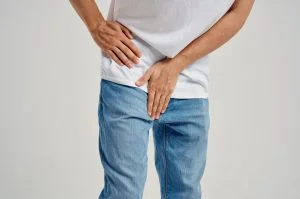Urinary Dysfunction
Urinary dysfunction is a term that encompasses all errors with within the urinary tract. This includes urinary incontinence on low levels such as leakage, to high levels such as a complete loss of all bladder control. As well as, any type of voiding symptoms from irritative to obstructive. Urinary dysfunction may be the cause of many different inflictions and it is important to find out exactly what that is.
What are Symptoms of Urinary Dysfunction?
Urinary dysfunction may sometimes be difficult to diagnose based off of other underlying issues. However, your standard symptoms of any type of urinary dysfunction may include:
- Feeling of being unable to empty the bladder completely.
- Leakage of urine.
- Complete loss of bladder control
- Increased urinary frequency
- Urinary urgency
- Pain during urination
It is important to be have your body checked out if there are any inconsistencies with your flow of urine. Sometimes these symptoms may be due to an underlying problem such as Benign Prostatic Hyperplasia (BPH), Urinary Incontinence, Bladder Stones or Prostate Cancer
What is Benign Prostatic Hyperplasia?
Benign Prostatic Hyperplasia, or BPH, is a condition in which the prostate enlarges as men get older. Over 70% of men in their 60s have BPH symptoms so it is very common. While BPH is a benign condition and unrelated to prostate cancer, it can greatly affect a man’s quality of life.
The prostate is a male reproductive gland, about the size of a walnut, that produces fluid for semen. The prostate surrounds the urethra, which is the tube that carries urine from the bladder out of the body. As the prostate enlarges, it presses on and blocks the urethra, causing bothersome urinary symptoms.
Symptoms
- Weak urine stream
- Difficulty starting urination
- Stopping and starting while urinating
- Dribbling at the end of urination
- Frequent or urgent need to urinate
- Increased frequency of urination at night (nocturia)
- Straining while urinating
- Not being able to completely empty the bladder
- Urinary tract infection
- Formation of stones in the bladder
- Reduced kidney function
What is Urinary Incontinence?
Urinary incontinence, or the loss of bladder control, is a common and often embarrassing problem that occurs in both men and women. About 20 million American women and 6 million men have urinary incontinence or have experienced it at some time in their lives. The actual number, however, may be higher because due to people’s reluctance to discuss incontinence with their doctors.
The severity of urinary incontinence can range from an occasional leakage of urine during a cough or sneeze to having the urge to urinate that’s so sudden and strong that an individual does not have time to make it to a toilet in time.
What are Bladder Stones?
- Kidney stones are solid pieces of material that form when substances normally found in the urine, such as mineral and acid salts, become concentrated and crystallize. A stone can range in size from a grain of sand to as large as a golf ball. It may remain in the kidneys or travel down the urinary tract into the ureter. A small stone may pass on its own, causing little or no pain. However, a larger stone may get stuck along the tract and block the flow of urine, resulting in intense pain or bleeding.
- Stone disease is one of the most painful and prevalent urological disorders. More than a million kidney stone cases are diagnosed each year, with an estimated one out of ten people expected to suffer from a kidney stone at some time in their life.
What is Prostate Cancer?
- Prostate cancer is one of the most common types of cancer in men. It occurs in the prostate- a small walnut-shaped gland that produces the seminal fluid that nourishes and transports sperm. Prostate cancer usually grows slowly and initially remains confined to the prostate gland, where it may not cause serious harm. However, once it begins to grow quickly and spreads outside the prostate, it is dangerous.


